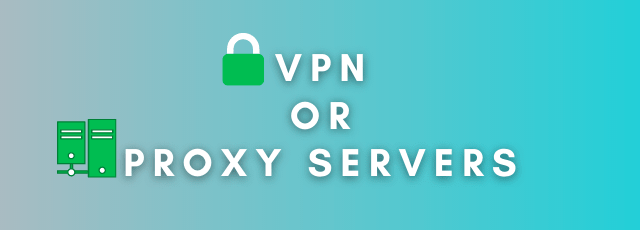You are not new to the terms VPN and proxy. Many people have heard of them, even use one or the other, but not the same. The terms VPN and proxy should not be used interchangeably.
Obviously, VPNs and proxies are very valuable security tools we have today. Both are tools to protect your physical identity and to access the geo-restricted content on the web.
The main difference between VPN and proxy is the level of security they offer. You can use any of the tools depending on the level of protection you need online.
Here are the main differences between a VPN and a proxy that you need to know to make the right choice.
How VPNs and Proxy Servers Work
You can use a VPN or a proxy server to keep your internet activity private.
VPN, short for Virtual Private Network, redirects your traffic through remote servers to hide your real IP address. VPN runs at the operating system level. This means that all internet traffic including browsers, torrents and background traffic from the application will be rerouted.
Proxy is a server that runs at the application level. It acts as an intermediary between you and the source of your internet traffic. Proxy ensures that your internet traffic comes from a different location.
When to Choose a VPN?
The difference between a VPN and a proxy server lies in their function. In non-professional language, a VPN is a type of steroid proxy server. These “steroids” or features vary by service provider, but data encryption is of utmost importance.
A VPN can encrypt your internet traffic so that it can’t be accessed by intermediaries like your ISP. Encryption is essential if you want to protect the type of information you have access to.
Because they encrypt your data, VPNs are often the tool of choice when it comes to privacy. If you need a secure connection to make payments or enter passwords, use a VPN instead of a proxy server.
A VPN is required to download torrents or access locked content on streaming sites. VPNs are also popular with gamblers who use them to get special offers and discounts for casinos like LeoVegas India.
When to Choose a Proxy
There are different types of proxies, each suitable for a different use case.
HTTP Proxy – Use this proxy to access web pages.
SOCKS5 Proxy – Used to access downloadable and streaming content, eg. B. File sharing, online gaming, and video streaming. Does not work with websites.
Transparent Proxy – This is a special filter proxy used to filter user content. Parents can use transparent proxies to control what kind of content their children can access.
Proxies are not only unprotected but also unreliable. Although faster than a VPN, they are unreliable and cannot guarantee good processing times. Connections often drop and your real IP address will eventually expire.
Upstream proxy servers are free and there are many on the internet. This is a great choice if you want to access the content privately and for a short time and don’t want to go through any setup steps.
Conclusion
As far as VPNs and proxy servers are concerned, the choice is clear: VPN is king. However, because of the level of privacy protection it comes at a price. If you just want to hide your IP address instantly to access websites or videos, you can use a proxy server.
However, if your plan is to keep spies away, protect your identity and passwords, and keep your data private from spies, hackers, and governments, the price of a good VPN is worth the security.

